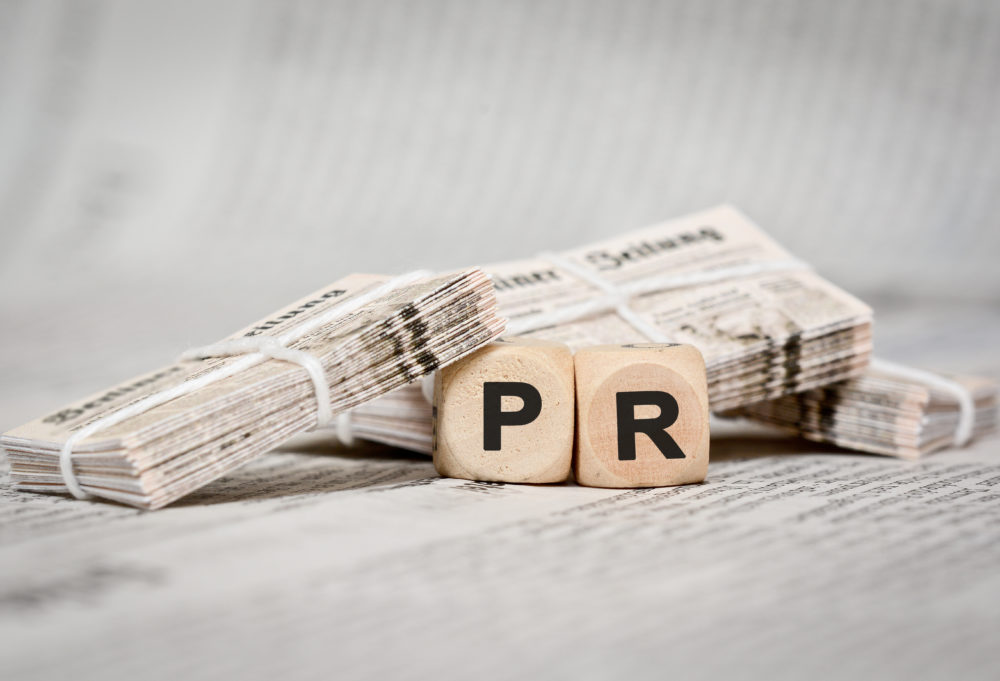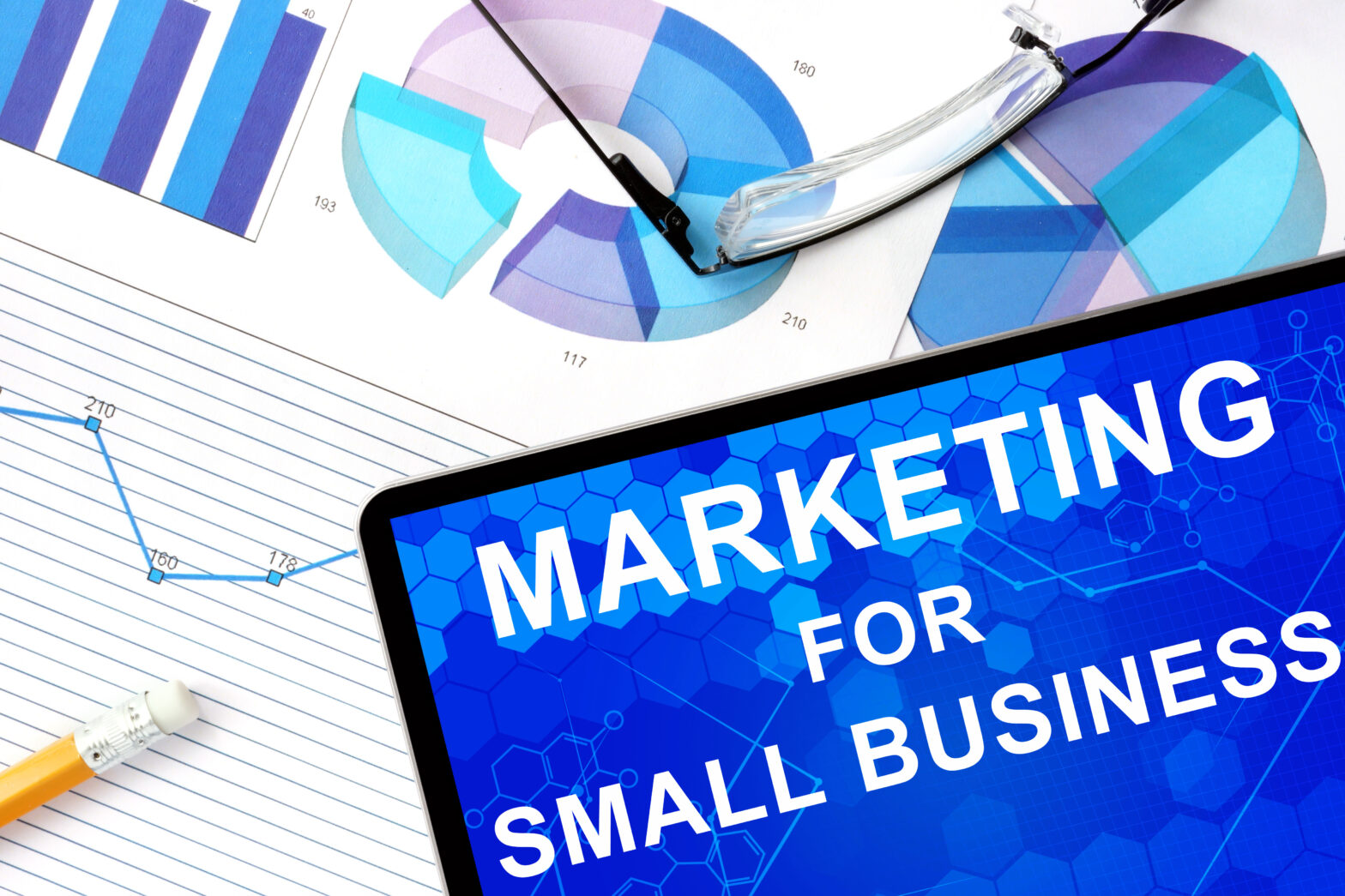When running a new start-up or small business, you may often feel like the odds are stacked against you as you try to take on bigger, established Goliaths and break into new markets. However, it should help to remember that David won his duel with Goliath because he used the right weapon.
For a small business in 2018 with the right thinking, messaging and approach, public relations (PR) and communications, or earned media, can be that weapon. Earned media means unpaid coverage in a number of different channels, from print newspaper coverage, to online news sites and video and radio broadcast opportunities. Ultimately, earned media gives you a variety of channels that enable you to make a resounding impact on the market and your target audiences.
Earned media helps you define and amplify what you want to tell the marketplace, which in turn establishes your credibility and builds support for your business. An additional benefit is that it builds your presence online and boosts your search rankings. This can all make the difference when you are on the hunt for investment and new customers.
While large businesses have bigger budgets to invest in PR, there are some simple steps you can take to ensure you are making your communications investment work for you as hard as it can, and with the right message, you can punch above your weight when it comes to media presence.
So, what do you need to create successful PR? Here are a few simple tips to consider for when you are planning your first, or next campaign.
Find your business’ unique voice and stick to it
Spend time at the beginning of your campaign to decide what it is you are trying to tell the world. Communication needs to go beyond your business offering; it needs to tie into the wider issues your audience finds relevant and important.
Today’s consumer is always connected and must contend with thousands of brands vying for their attention, across a multitude of channels, every day. To cut through this noise, businesses must find an engaging story to tell their potential customers and investors. To succeed you need to tell a human story that will resonate with your customers. Your unique voice is what will differentiate you from the others.
A great example of this in action plays out in coffee giant Costa’s recent fall in high street sales, which it cites is because of customers opting to support local, artisan coffee shops instead. These small businesses have been able to tap into an ongoing movement of consumers moving away from large chain coffee shops and seeking out independently-owned businesses that have an emphasis on sustainability and coffee as a ‘craft.’
Often the coverage that these kinds of businesses generate focuses on the business owner’s mission to deliver a better, alternative experience for customers. Earned media exposure of this kind works, even when starting small in local newspapers and magazines, as it offers a platform to bring their mission and ‘voice’ to a wide pool of potential new customers.
Measuring your momentum
Small businesses do not have the benefit of big PR budgets, so measurement – helping you focus to spend your cash on the areas that really work for you – is crucial. By deciding on the best measurement structures and tools from the outset, you will have a clear view of a campaign’s impact at every stage of your journey. This will help you get the best return on investment possible.
There are many useful tools online that can advise you about how you can measure your PR success. AMEC, the international association for the measurement and evaluation of communication, is a great starting point for this. The association has established a compelling and easy to use, free, measurement framework used by thousands of businesses worldwide.
Create ambassadors for your business
Another key element in a successful PR campaign is the relationships you have with your customers and investors. They can become ambassadors for your story. If someone queries the value, or effectiveness, of what you do – a client or customer backing you up can be the best response. Case studies and examples bring stories to life by adding colour and proof points to the business story you are telling.
Once your customer has agreed to feature in your external outreach, you can use their success stories in blogs, social posts and media outreach. Your success as a business relies on the success of your customers and partners, so they should feature as the key part of your narrative.
PR is too important to be only done by PRs
Everyone in your business is responsible for singing their praises to the outside world, especially at the early stages of your business journey. Make sure that you are tapping into your internal resources across the business to get the proof points and different perspectives allowing you to tell your story in a more comprehensive and authentic way.
Following these tips and using the right tools will help you propel your communications to the next level. Earned media can then become your powerful ally supporting your business’ growth. Used in the right way, earned media can help you overcome any fear of taking on much bigger rivals when it comes to competing for attention.
Toby Hollis, CMO at community media platform Disciple, discusses how to take on larger competitors by solving their problems in a more agile way.
Our company is a smartphone-first community media platform, and we aim to make it easy for brands, celebrities, niche publishers and specialist interest groups to build and manage a community through their own branded app.
While there are other peers in our category who do some similar things we don’t have many direct competitors. As far as the customer is concerned the competition is Facebook and YouTube – primarily – as these are the platforms most used for community interaction and engagement. But by offering our own white label service we give these communities the ability to take social ‘inhouse’ as it were. Our challenge is to help customers understand our category and why it’s a better alternative.
To set ourselves apart, it’s been about working with famous clients. When we built a community app for the Rolling Stones, we sent a signal to the music community that instead of putting content on social to a mass, less engaged, non-paying audience they can do it on their own platform and build a direct relationship with their fans, plus an incremental revenue stream.
“Setting ourselves apart has been about working with famous clients”
Then, in February, the then digital minister Matt Hancock launched his own community app. This helped other MPs and local community groups to see how effective ‘owned social’ can be in terms of engaging local constituents, in a space that feels like social media but is safe and moderated.
Understanding the problem large competitors have
When you look at what larger competitors are doing, it’s crucial to understand the problem that they have, that you as a small business are looking to solve. In our case, it’s social media, but a great example here is how TransferWise took on the banks, by highlighting the problem of extortionate fees and poor exchange rates given by the banks. They leveraged that message in creative ways to build buzz and PR uptake.
Second is to ‘borrow fame’ and demonstrate how your customers are succeeding by using your business. When you’re pre-series A and don’t have millions to burn on marketing, focus on giving your customers the best experience you can, with an eye on building advocacy and word of mouth. Pound for pound it pays off because media want real-world stories. They don’t care about your product, they care about the story behind who is using is and how.
So plot some lightning strikes – those moments when the market will sit up and take notice, in our case when we launched the Rolling Stones and politics with Matt Hancock. Leverage this through PR, yes, but don’t expect the phone to ring because you were on the BBC. Build a wider marketing campaign off the back of it.





